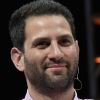20 Government Books That Shape Understanding and Reform
Expert picks from Keith Ellison, Jared Bernstein, and Pete Buttigieg reveal essential Government Books for policy insights and democratic knowledge






What if the very structures that govern our lives are more complex—and precarious—than you thought? Government shapes everything from where people live to how democracy functions, yet many aspects remain hidden or misunderstood. Today, understanding government is not just for policymakers but essential for anyone engaged in the civic life of their country.
Prominent figures like Keith Ellison, Minnesota Attorney General, and Jared Bernstein, Senior Fellow at the Center on Budget, have shared how books such as The Color of Law illuminated systemic policies that shape racial segregation. Meanwhile, Pete Buttigieg, former mayor and presidential candidate, has highlighted works explaining the delicate balance of power and liberty. Their endorsements speak to the depth and urgency of these readings to grasp government’s impact.
While these expert-curated books provide proven frameworks on government history, policy, and reform, readers seeking content tailored to their specific interests—like constitutional law, democratic theory, or public administration—might consider creating a personalized Government book that builds on these insights, shaping knowledge to your goals and background.
Recommended by Keith Ellison
Minnesota Attorney General
“Just listened to the audio version of one of my favorite books, The Color of Law: A Forgotten History of How Our Government Segregated America by Richard Rothstein. Highly recommend.” (from X)
by Richard Rothstein··You?
by Richard Rothstein··You?
What if everything you knew about residential segregation was wrong? Richard Rothstein, a leading expert on housing policy, argues that racial separation in American cities didn’t happen by accident or private prejudice but was deliberately engineered by local, state, and federal governments. You’ll learn how explicit laws and policies shaped segregated neighborhoods through zoning, public housing, and discriminatory subsidies, with chapters detailing post-war suburbanization and the enforcement of these divisions by police. This book is especially relevant if you want to understand the systemic roots of racial inequality and how government decisions continue to impact urban landscapes today.
Recommended by Neal Katyal
Former US Acting Solicitor General; law professor
“Can not wait to read this book, from the brilliant pair @jacklgoldsmith (George W Bush senior doj official) & Bob Bauer (Obama White House counsel). 2 of the smartest former govt people I know & a political odd couple. We have a lot of rebuilding to do” (from X)
by Bob Bauer, Jack Goldsmith··You?
by Bob Bauer, Jack Goldsmith··You?
Drawing from their extensive experience in senior government roles, Bob Bauer and Jack Goldsmith dissect the presidency's challenges exposed during recent administrations, offering over fifty reform proposals across critical issues like presidential conflicts of interest, election security, and executive power limits. The book details how historical precedents and legal norms inform these reforms, grounding abstract concepts in concrete examples such as Special Counsel procedures and war powers control. If you seek to understand the mechanics behind presidential authority and the urgent need for structural reform, this book equips you with nuanced insights relevant to policymakers, legal scholars, and informed citizens alike. Its thorough examination makes it less suitable for casual readers looking for light political commentary.
by TailoredRead AI·
This tailored book explores the intricate workings of government through a lens that matches your background and interests. It covers foundational principles such as democratic structures, policy development, and constitutional functions, while also delving into specialized topics like public administration and political theory. By focusing on your specific goals, this personalized guide reveals the complexities of governance and civic engagement in a way that resonates with your unique perspective. It synthesizes expert knowledge into a coherent narrative designed to deepen your understanding and empower your civic participation.
Recommended by Roger Bennett
NBC Gent, Co-Host of Men In Blazers
“The book which helped me best understand the tectonic plates shifting in the world around us” (from X)
by Anne Applebaum··You?
by Anne Applebaum··You?
Anne Applebaum's decades as a historian of totalitarian regimes underpin this sharp analysis of why democratic elites increasingly embrace nationalist and authoritarian ideas. You get a clear view of the psychological and social dynamics that make simplistic, exclusionary political ideologies appealing, especially to those who feel loyalty to a shrinking in-group. The book includes personal reflections and case studies from the US, UK, and Europe, revealing how friendships fracture and ideals erode under political pressures. If you're examining the fragility of democracy or trying to understand modern political polarization, this book offers a grounded, incisive perspective that avoids simplistic blame or ideology.
Recommended by Chris Hayes
Host of All In With Chris on MSNBC
“Steve's book is great and has really framed the way I think about all this.” (from X)
After years producing The Rachel Maddow Show, Steve Benen turned his deep understanding of American politics into a detailed examination of the Republican Party's transformation. This book reveals how the GOP shifted from a governing body to a power-focused entity, abandoning policy substance for political gain. You’ll gain insights into how this change affects governance, with examples tracing the party’s posture from the Obama years through the Trump era. If you're interested in the intersection of political strategy and institutional dysfunction, this book offers a clear, evidence-based narrative of a party that has largely quit governing.
Recommended by Arnold Schwarzenegger
Actor and Former Governor of California
“I wish this book existed 50 years ago when I moved to the United States. Ben's constitutional breakdown is a must-read for every current and aspiring citizen.” (from Amazon)
by Ben Sheehan··You?
When Ben Sheehan, a former award-winning executive producer at Funny Or Die, turned his attention to the Constitution, he brought a fresh, accessible voice to a document often seen as dense and inaccessible. This book translates the founding text into modern language, breaking down complex concepts like presidential powers and Supreme Court nominations with witty notes and clear graphics, making it easier for you to grasp how your government is meant to operate. You’ll gain insights into constitutional clauses and hidden loopholes, empowering you to engage more confidently in elections and civic life. If you want a straightforward yet engaging guide that demystifies the Constitution, this book is tailored for you—but those looking for deep legal theory might find it more introductory than exhaustive.
by TailoredRead AI·
This tailored book explores the essentials of government knowledge with a focus on rapid learning and practical application. It covers foundational concepts, governance structures, policy analysis, and democratic principles, all matched to your background and interests. By providing a personalized pathway, it helps navigate complex topics such as constitutional law, public administration, and political systems in a way that aligns with your goals. Through a custom synthesis of expert knowledge, this book reveals how government functions, the dynamics of power, and the processes shaping public policy. Its tailored content ensures you engage deeply with subjects that matter most to you, accelerating your understanding efficiently and effectively.
Recommended by Michael Mcfaul
Professor and former U.S. Ambassador
“Nothing more I’d rather have than a book endorsement from Steve Kerr! And it is a great book.” (from X)
by Steven Levitsky, Daniel Ziblatt··You?
by Steven Levitsky, Daniel Ziblatt··You?
After analyzing decades of democratic breakdowns across continents, Harvard professors Steven Levitsky and Daniel Ziblatt crafted this detailed examination of democracy’s subtle decline. You learn to recognize the slow erosion of political norms and institutions—like the judiciary and free press—that precede authoritarian rule, with examples from 1930s Europe to modern-day America. The book offers frameworks for spotting warning signs and understanding how democracies can falter without dramatic upheavals. If you’re concerned about political stability or seeking a historical lens on current events, this book provides a clear-eyed perspective on the vulnerabilities democracies face.
Recommended by Ben Jacobs
Political journalist and commentator
“Pretty remarkable window here into how Lindsey Graham deals with Trump at the end of this @jdawsey1 preview of the @jmartNYT/@alexburnsNYT book” (from X)
by Jonathan Martin, Alexander Burns··You?
by Jonathan Martin, Alexander Burns··You?
Jonathan Martin and Alexander Burns, both seasoned political journalists with deep experience at Politico and CNN, deliver a detailed narrative of the 2020 U.S. election and the chaotic first year of the Biden administration. You gain an insider’s perspective on critical events such as the Capitol attack, internal party conflicts, and Biden’s challenges in uniting a polarized nation. The book offers chapter-by-chapter insights into behind-the-scenes political maneuvers, including the selection of Kamala Harris and Trump’s attempts to undermine the election results. If you’re interested in understanding the fractures within America’s two-party system and the pressures on democratic institutions, this book provides a clear, well-sourced chronicle.
Recommended by James Wong
Science communicator, Botanist at New Scientist
“This edition is a substantive enhancement of the previous editions, with more comprehensive coverage of politics in authoritarian regimes, which is of tremendous added value. This is a text on which students and teachers of comparative politics can count.” (from Amazon)
by John McCormick, Rod Hague, Martin Harrop··You?
by John McCormick, Rod Hague, Martin Harrop··You?
John McCormick, along with Rod Hague and Martin Harrop, draws on decades of teaching comparative politics to help you grasp the complexities of political systems worldwide. The book guides you through foundational theories and methods, then dives into institutions like courts, elections, and interest groups, offering up-to-date insights on topics such as democratic backsliding and trust in government. You'll appreciate chapters that analyze both democracies and authoritarian regimes, providing a balanced perspective. This text suits students and anyone seeking a structured, nuanced understanding of government systems rather than quick answers or partisan takes.
Recommended by Laurence Tribe
Constitutional law professor, Harvard University
“Magnificent.…The wisdom of the final chapter in particular absolutely floored me.” (from Amazon)
by David Frum··You?
by David Frum··You?
David Frum leverages his experience as a former speechwriter for President George W. Bush to dissect how President Trump has reshaped American democracy. This book offers a detailed examination of the erosion of key democratic institutions, highlighting how traditions and norms that once restrained presidential power have been weakened. You’ll gain insight into the mechanisms of political corruption, the subtle shifts toward illiberalism, and how media freedom and judicial independence have been challenged. It’s a sobering exploration ideal for those seeking to understand the current state of American governance and the forces threatening its foundational structures.
Recommended by Elizabeth Spiers
Ex editor in chief, The New York Observer
“Also, Justin Amash, you might find this book interesting on that point—especially considering that the author is not exactly a big government advocate: The Fifth Risk” (from X)
by Michael Lewis··You?
by Michael Lewis··You?
When Michael Lewis turns his attention to government, he reveals much more than just policy failures—he exposes a troubling disconnect between those wielding power and the essential knowledge needed to govern effectively. Through vivid profiles of unsung federal workers in departments like Energy and Agriculture, you gain insight into the complex machinery that keeps the nation running and the risks posed when leadership is uninformed or indifferent. You’ll encounter real-world examples, such as the underfunding of food assistance programs and the challenge of securing nuclear materials, which illustrate the stakes of bureaucratic neglect. This book suits anyone seeking to understand what happens behind the scenes in government operations and why expertise matters.
Recommended by Jimmy Wayne
Recording artist and bestselling author
“A BOOK FOR CHRISTMAS Three time New York Times bestseller Get it for someone you love !” (from X)
by Lawrence Lessig··You?
by Lawrence Lessig··You?
What started as a legal scholar’s deep concern about America’s political dysfunction became a rigorous examination of how democracy today falls short of its promise. Lawrence Lessig, a Harvard law professor and founder of equalcitizens.us, dissects the gap between the government and its people, revealing how partisan gerrymandering, campaign financing, and uninformed public discourse erode representation. You’ll gain insight into institutional reforms like public campaign funding and Electoral College overhaul, alongside the role citizens must play to revive democratic engagement. If you want a clear-eyed yet hopeful look at fixing American democracy, this book offers a focused roadmap, though it’s less about sweeping theory and more about targeted, structural change.
Recommended by Bob Dylan
American singer-songwriter
What happens when seventeenth-century political upheaval meets philosophical rigor? John Locke’s Two Treatises of Government, written anonymously during tensions over the English monarchy, lays out foundational ideas about natural rights, government by consent, and the right to revolution. You’ll explore Locke’s detailed arguments on private property and social contracts, which have shaped law and governance for centuries. This edition also delves into Locke’s life and the turbulent political context that influenced his thinking, making it a rich resource if you want to understand the roots of modern liberal democracy. If your interest lies in political philosophy or the evolution of government principles, this book will deepen your grasp, though it’s less suited for casual readers seeking light political commentary.
Recommended by Jason Whitlock
Sports journalist and cultural commentator
“Nuclear family must be restored. While reading Rev. Tony Evans' book, Kingdom Politics, I had the thought: In addition to individual men and women voting, we should give married families an additional single vote. We need to reward and empower families. Tilt scale toward family.” (from X)
by Tony Evans··You?
by Tony Evans··You?
Tony Evans, with his extensive background as a pastor and theological scholar, dives into the intersection of faith and politics, challenging you to rethink how biblical principles apply to governance. This book guides you through integrating Scripture fully into political discussions, addressing topics often overlooked in public debate, such as family roles and moral issues, while promoting respectful dialogue even amid disagreement. Chapters encourage speaking with grace and maintaining unity within your community despite political differences. If you're grappling with how to incorporate faith into civic life without division, this book offers a thoughtful, grounded perspective.
Recommended by Samuel Carvalho
Founder of global mental health organization
“I bought David Cameron’s (@David_Cameron) memoir (book) the other day and have found it rather interesting. Like many political books I’ve read, it gives you a greater insight into the decisions and reasoning behind many big decisions made during their tenure that wasn’t known.” (from X)
by David Cameron··You?
by David Cameron··You?
David Cameron’s decades in British politics culminate in this detailed memoir that goes beyond the usual political narrative. You’ll explore how he navigated economic crises, formed a rare coalition government, and pushed forward reforms on education, welfare, and environmental policy. The book also offers firsthand insights into major global events like the Arab Spring and Brexit, blending personal reflection with policy analysis. If you’re interested in understanding leadership decisions during turbulent times and the interplay of domestic and international politics, this provides a candid, intricate perspective that’s both revealing and instructive.
Recommended by Andreas Mehler
Director, GIGA Institute of African Affairs
“Nic Cheeseman has embarked on a big adventure - to describe and analyse progress and setbacks of democratization processes on an entire continent, from Senegal to Kenya, from Mali to Zimbabwe. The result is an extremely rich study that follows some standard pathways, thereby doing justice to a multi-faceted body of research, that also digs deeper into largely neglected aspects meriting more attention, be it the 'democratic dividend' for Africa on the one hand, or the devastating effects on democracy of the widely used 'politics of fear' on the other. This book can serve as a compass in the bewildering complexity of Africa’s political landscape.” (from Amazon)
by Nic Cheeseman··You?
Nic Cheeseman draws on his extensive academic work at Oxford and his editorial experience with African Affairs to unpack the complex history of democracy across Africa. You’ll explore how democratic processes have repeatedly stumbled due to ethnic divisions, authoritarian backsliding, and electoral corruption, with detailed case studies ranging from Mali’s collapse to Zimbabwe’s political struggles. The book also challenges you to consider the role of international actors and local institutions in shaping political reform. It’s especially suited for you if you want a nuanced understanding of African political dynamics beyond surface narratives.
by Joss Sheldon··You?
by Joss Sheldon··You?
When Joss Sheldon questions the very notion of freedom in modern democracies, he challenges you to rethink what it means to truly govern yourself. Drawing on a variety of real-world examples—from a democratic school in England to participatory budgeting in Spain—this book unpacks how power structures shape daily life and offers tangible models where democracy extends beyond voting. You'll encounter innovative practices like workplace democracy at Semco and community currencies, gaining insight into alternatives to traditional political systems. While it won't give you a blueprint for instant change, it invites you to explore democratic possibilities that are already in motion around the world, especially valuable if you're curious about practical political reform.
Recommended by Scott Dworkin
Co-Founder of The Democracy Coalition, political investigator
“Former Obama speechwriter’s new book is a roadmap for rebuilding our democracy. My interview with the brilliant David Litt:” (from X)
by David Litt··You?
David Litt challenges the conventional wisdom that understanding American democracy requires dry political theory. Drawing on his time as a White House speechwriter and his knack for storytelling, he reveals how the system has been fundamentally altered in ways most people overlook. You’ll gain insight into key historical moments and institutional quirks, like how the Senate’s dysfunction traces back to James Madison’s roommate, and the bizarre journey a bill takes to become law. This book suits anyone interested in the mechanics of government and the practical challenges of reform, though it may feel too informal for readers seeking purely academic analysis.
Recommended by Ricardo Salinas Pliego
#Bitcoin holder and business leader
“What is "The Anatomy of the State"? Read, learn and survive the designs of the cannibalistic "Dictocrats". Great book, a must read by Murray Rothbard.” (from X)
by Murray Rothbard··You?
by Murray Rothbard··You?
The counterintuitive approach that changed Murray Rothbard's perspective on political authority unfolds in this compact yet provocative work. Rothbard, a key figure in libertarian thought and anarcho-capitalism, dissects the state as an institution that undermines freedom and morality under the guise of benevolence. You’ll explore his argument that the state operates as a systemized form of robbery, threatening property and social well-being. This book suits those interested in political philosophy, especially readers questioning conventional views on government and state power.
Recommended by Rachel "The Doc" Bitecofer
Election expert, Niskanen Center Senior Fellow
“@jon_m_rob @bindersab That's actually a great thread idea. What poli sci grad seminar books did you find so captivating did you actually read the book, cover to cover? For me the answer is def The Electoral Connection. Its my bible. I'm a Mayhewian.” (from X)
by David R. mayhew·You?
by David R. mayhew·You?
David R. Mayhew, a distinguished political scientist, crafted this book to challenge traditional views of legislative behavior by focusing on the relentless drive for reelection as the central force shaping Congress. You’ll explore how this pursuit influences everything from policy decisions to committee work, with Mayhew’s analysis grounded in detailed empirical research and enriched by a new preface and foreword that contextualize its lasting influence. Chapters dissect strategies like advertising, credit claiming, and position taking, offering you a framework to understand legislative motives beyond ideology. This book suits anyone keen on political science, government insiders, or engaged citizens wanting a sharper lens on congressional dynamics.
Recommended by Trevor Ncube
Keynote speaker and media executive
“@samkebusiness @TrevorBookClub @Thubz_ It is an awesome book Samkeliso. Strongly recommend it.” (from X)
by Daron Acemoglu, James A. Robinson··You?
by Daron Acemoglu, James A. Robinson··You?
Unlike most government books that focus narrowly on policy mechanics, this work explores the dynamic tension between state power and societal strength that shapes liberty. Written by MIT's Institute Professor Daron Acemoglu and co-author James A. Robinson, it draws on diverse historical and contemporary cases—from the American Civil Rights Movement to ancient Zapotec civilization—to explain how liberty emerges and endures through a delicate balance. You’ll gain insight into the cyclical struggles that keep societies within what they call the "narrow corridor" of freedom, including the risks of authoritarianism and anarchy. This book suits those seeking a deep understanding of political freedom’s fragility and the institutional interplay behind it.
Get Your Personal Government Strategy in 10 Minutes ✨
Stop sifting through endless books. Get targeted Government insights tailored to you—fast and focused.
Trusted by 70+ Government enthusiasts and experts
Conclusion
The 20 books showcased here reveal three crucial themes: the enduring impact of government policies on social justice, the fragility and resilience of democratic systems, and the evolving nature of political power and governance. If you’re grappling with political polarization, start with How Democracies Die and Twilight of Democracy to understand the warning signs.
For rapid implementation of democratic reforms, combine They Don't Represent Us with OMG WTF Does the Constitution Actually Say? to bridge theory and practical civic engagement. And if your focus is on understanding government operations, The Fifth Risk and Congress offer insider views.
Alternatively, you can create a personalized Government book to bridge the gap between general principles and your specific situation. These books can help you accelerate your learning journey and deepen your grasp of governance today.
Frequently Asked Questions
I'm overwhelmed by choice – which book should I start with?
Start with How Democracies Die for a clear view of democratic stability and risks. It's widely praised for laying a solid foundation before diving into specialized topics.
Are these books too advanced for someone new to Government?
Not at all. Books like OMG WTF Does the Constitution Actually Say? and Democracy in One Book or Less offer accessible introductions perfect for beginners.
What’s the best order to read these books?
Begin with broad analyses like The Color of Law or Comparative Government and Politics, then explore focused works on democracy, policy, or political philosophy.
Should I start with the newest book or a classic?
Mix both. Classics like John Locke’s Two Treatises provide foundational ideas, while recent works like This Will Not Pass offer current political context.
Do I really need to read all of these, or can I just pick one?
You can pick based on your interest. Each book offers unique insights; for a comprehensive view, combine historical, theoretical, and contemporary analyses.
How can I get tailored Government insights without reading multiple full books?
Yes, while these books provide expert knowledge, a personalized Government book can tailor insights to your goals and experience. Explore creating your custom Government book to bridge expert knowledge with your personal context.
📚 Love this book list?
Help fellow book lovers discover great books, share this curated list with others!
Related Articles You May Like
Explore more curated book recommendations



















